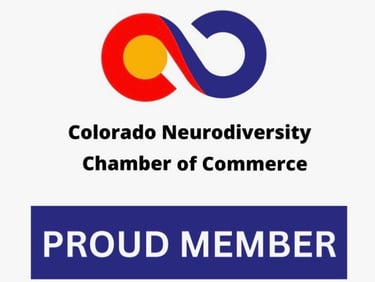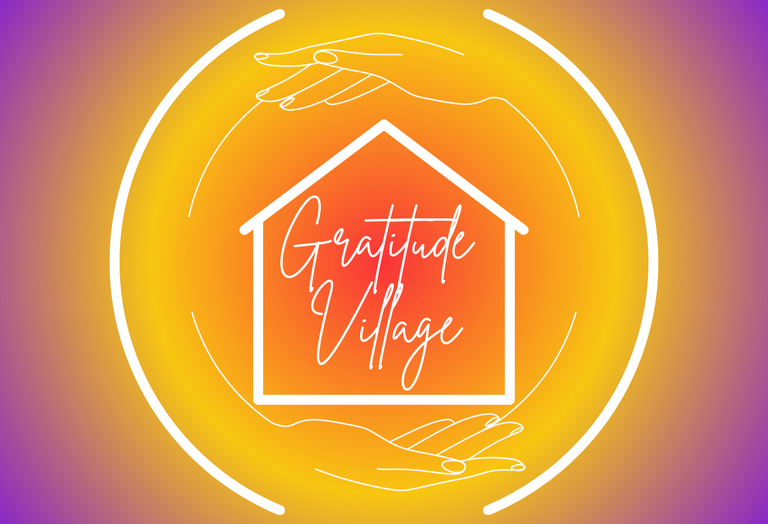Zoom Info Session Thursday February 26, 2026 5:30-6:30PM Mountain Time
Embracing Conflict: A Pathway to Stronger Community
Conflict is not a failure—it’s a natural and healthy part of life in cohousing. In this blog, we explore how thriving communities like Gratitude Village embrace conflict as an opportunity for growth, stronger relationships, and deeper trust. Discover how tools like sociocracy, respectful communication, and restorative practices transform disagreements into pathways for connection, resilience, and shared purpose.
Gratitude Village
10/2/20254 min read


When most people think about conflict, their first instinct is to avoid it. Arguments, disagreements, and differences of opinion can feel uncomfortable or even threatening. But in the context of community living, conflict isn’t a sign of failure—it’s a natural and healthy part of life together. In fact, conflict can be the very thing that strengthens relationships when handled with care and the right tools. Instead of sweeping tension under the rug or hoping it disappears, cohousing communities like Gratitude Village embrace conflict as an opportunity for growth, deeper understanding and stronger bonds.
Living in close proximity to others inevitably means rubbing elbows with different personalities, communication styles, and preferences. One neighbor may love hosting frequent gatherings, while another may prefer peace and quiet. Some families may have strong opinions about sustainability practices, while others might prioritize affordability above all else. These differences don’t mean the community is doomed to discord—they mean the community is alive, diverse, and filled with real human beings. Rather than fearing disagreement, thriving cohousing groups recognize it as a valuable spark that can ignite meaningful conversations about values, priorities and shared vision.
It helps to reframe conflict as feedback. In the same way a body uses pain to signal that something needs attention, conflict signals that something in the community requires clarity, balance or change. Instead of being destructive, conflict can be constructive when communities create safe containers for it. With the right mindset, it becomes less about “winning” or “losing” and more about uncovering needs, assumptions and solutions. Cohousing communities that actively cultivate this perspective tend to experience greater resilience and satisfaction among members because they trust their group can weather challenges together.
The key, of course, lies in process. At Gratitude Village, we are committed to using sociocracy and other consensus-based models that give everyone a voice while creating clear pathways for decision-making. These tools provide structure for navigating disagreements and ensure that power doesn’t concentrate in the hands of a few. For example, if there’s tension about how often common meals are scheduled, the group can use structured rounds of sharing to hear everyone’s perspective, identify the underlying needs and design a solution that balances competing desires. Having an agreed-upon framework for how decisions get made takes much of the heat out of conflict, because everyone knows the process is fair and inclusive.
It’s also important to distinguish between healthy conflict and harmful conflict. Healthy conflict might involve differing opinions, passionate debate or strong emotions—but it takes place in a context of mutual respect and a shared commitment to resolution. Harmful conflict arises when individuals attack one another personally, refuse to listen or disengage entirely. Communities that thrive at conflict resolution set clear agreements about communication: listening actively, speaking honestly, assuming good intentions and seeking to understand before responding. These agreements, often called “community norms” or “communication covenants,” create a culture of accountability that supports respectful dialogue even when tensions rise.
Conflict can also be a powerful teacher on an individual level. Living in community offers daily opportunities to practice patience, empathy and self-reflection. Maybe you notice that a neighbor’s criticism stings more than you expected. That discomfort can prompt you to ask why—what need or value is being touched? Or perhaps you discover that you struggle to speak up when you disagree, and community life gives you a supportive environment to strengthen your voice. Far from being a nuisance, these small conflicts help us grow as individuals, and that personal growth ripples outward to benefit the whole group.
One of the most rewarding aspects of conflict resolution in cohousing is the way it transforms relationships. When two people work through a disagreement constructively, they often emerge with more trust, not less. They’ve seen one another’s vulnerability, clarified expectations and discovered shared ground. Over time, these moments build a culture of authenticity where neighbors know they don’t have to pretend everything is perfect. They can show up as their full selves, confident that differences won’t shatter the community but will instead deepen its resilience.
Of course, conflict doesn’t always resolve overnight. Sometimes it requires multiple conversations, or even outside facilitation, to untangle thorny issues. In these cases, bringing in an experienced mediator can help the group navigate complexity while maintaining goodwill. Many cohousing communities schedule regular trainings in nonviolent communication or restorative practices, equipping residents with practical skills for hard conversations. By treating conflict as a shared responsibility, rather than leaving it to chance, communities build a collective capacity that prevents small issues from festering into big divisions.
Conflict resolution also plays a vital role in governance. Decisions about finances, land use or long-term planning are rarely unanimous at first glance. But by working through disagreements openly and systematically, communities end up with more robust decisions that reflect a wider range of needs and perspectives. A budget, for instance, may be strengthened by the input of both frugal members and those advocating for community investment. The tension between different priorities is not a weakness but a strength, because it forces the group to think more creatively and inclusively.
At Gratitude Village, we see conflict as a sign that people care deeply—about each other, about the community and about the future we are building. It means that members are invested enough to voice their opinions and risk being vulnerable. Instead of brushing that passion aside, we honor it by giving it a channel. Through clear processes, respectful communication and a commitment to learning, we transform conflict into connection.
In the end, embracing conflict is about embracing humanity. No one is perfect, and no community is without disagreements. What matters is not whether conflict arises, but how we respond when it does. Do we retreat, blame or attack—or do we lean in, listen and grow? In cohousing, we choose the latter. Because when conflict is welcomed as a teacher, it becomes one of the most powerful forces for building not only a stronger community, but a more compassionate world.
COMMUNITY
Join us in embracing nature, diversity and connection.
Sustainability
DIVERSITY
info@gratitudevillageco.com
720-689-4821
© 2026. All rights reserved.
AFFORDABILITY
Gratitude Village Inc. is a 501(c)3 charitable corporation (public charity) that values diversity, equity and inclusion as essential to our mission. EIN #33-2499522
Subscribe to our Substack
Refund Policy




Gratitude Village is a Proud Member of these organizations
